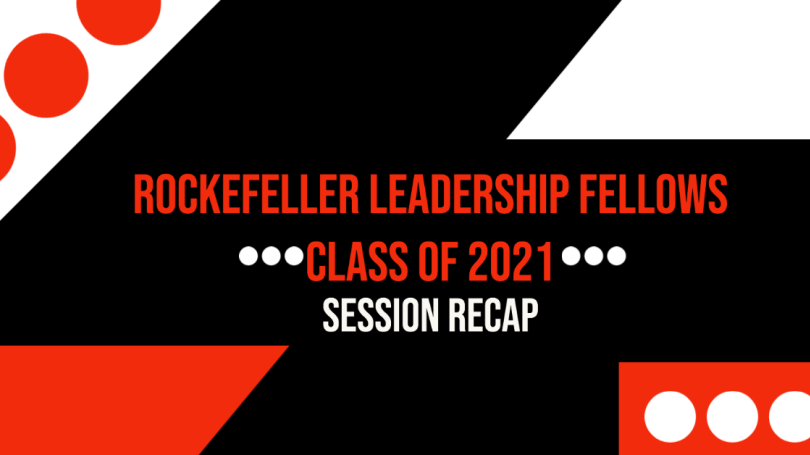
- Public Policy
- Leadership
- Funding
- News & Events
- About the Center
Back to Top Nav
Back to Top Nav
Back to Top Nav
Back to Top Nav
For the third session of the program, the Fellows were joined by Dr. Stephen Gonzalez, the Assistant Athletic Director for Leadership and Mental Performance at Dartmouth College. With the week’s assignments focusing on leadership philosophies and values, Stephen’s focus on leadership theories was apt. Stephen began by introducing the evolution of leadership theories through time, from the “Great Man Theory” that supported monarchies to the more modern theories that are endorsed today. Central to the discussion was the differences between leadership traits and leadership skills. According to Stephen, leadership is not innate but something that can be learned; this understanding supports the notion of leadership skills over leadership traits.
To help the Fellows understand how leadership theories may inform their leadership philosophies, Stephen instructed the Fellows to draw simple explanations of their leadership philosophies and discuss their drawings in small groups. When the Fellows came back together, it became clear that many of the Fellows endorse similar understandings of leadership, with the more modern theories of leadership clearly influencing these philosophies.
By exploring the evolution of leadership theories and understanding how these theories influence their perceptions of leadership, the Fellows are now better equipped to pinpoint how their leadership philosophy came to be. Knowing the origins of their beliefs enables the Fellows to spot shortcomings in their leadership philosophies and offers a multitude of approaches to round out their philosophies. In addition, being aware of past and modern theories of leadership prepares the Fellows to better predict how their peers and superiors may understand leadership, so that the Fellows may adapt their leadership style accordingly.
In consideration of the past sessions, the best strategy to develop the strongest and most authentic leadership strategy for yourself is to seek solitude and use a multitude of strategies to better understand yourself. With self-introspection, potential leaders like the Fellows can then begin to consider other people and how they interact with them, empowering them to create strong relationships built on broad understanding of others and themselves.
-Written by Maria Smith-Lopez, Class of 2021 Rockefeller Leadership Fellow and Student Program Assistant
As Rockefeller Leadership Fellows, seniors gain a better understanding of the qualities and responsibilities expected of leaders. As Fellows take part in the workshops, discussions, and team-building exercises, they examine their skills, qualities, and attributes as leaders and analyze how these influence teamwork and achieving goals.